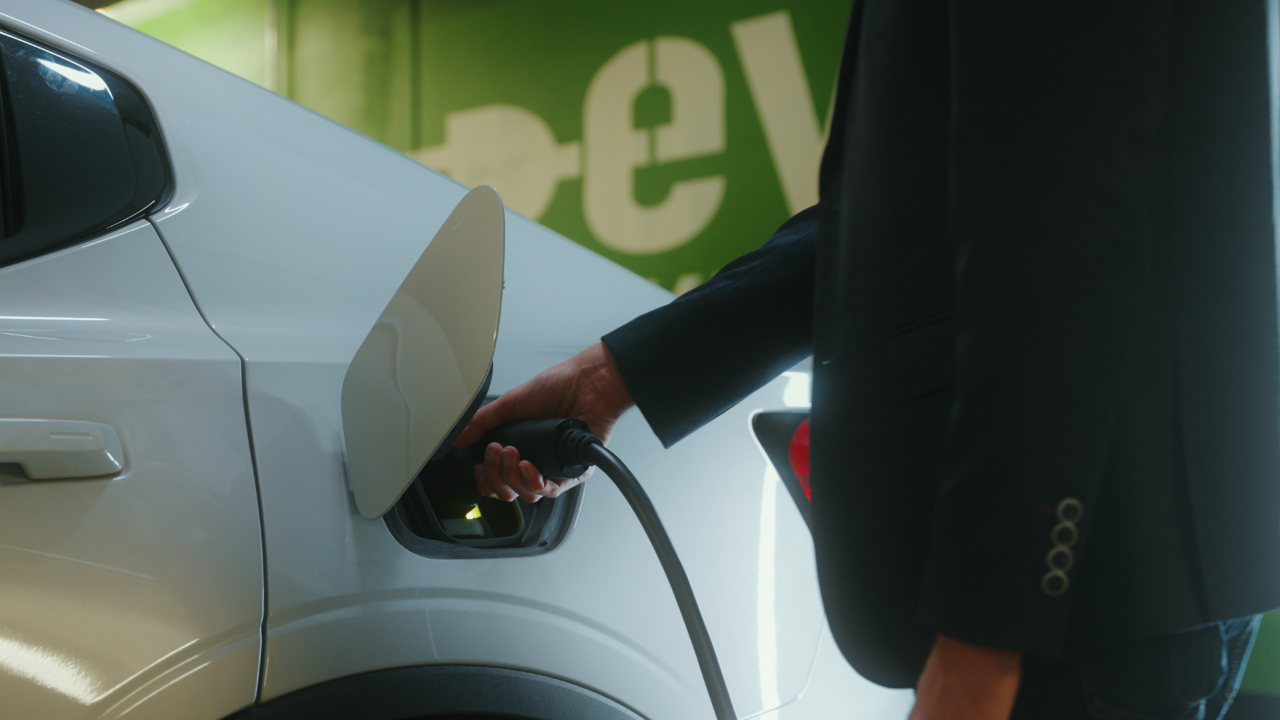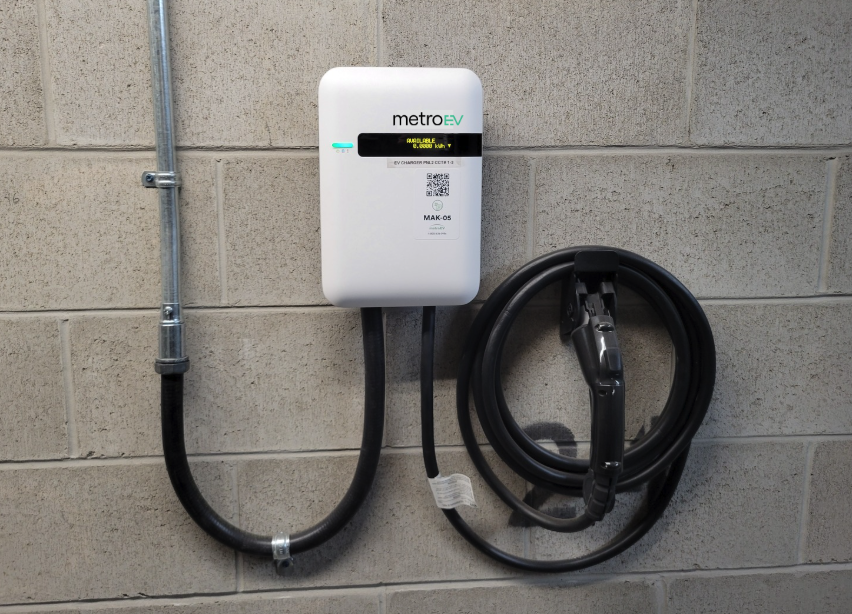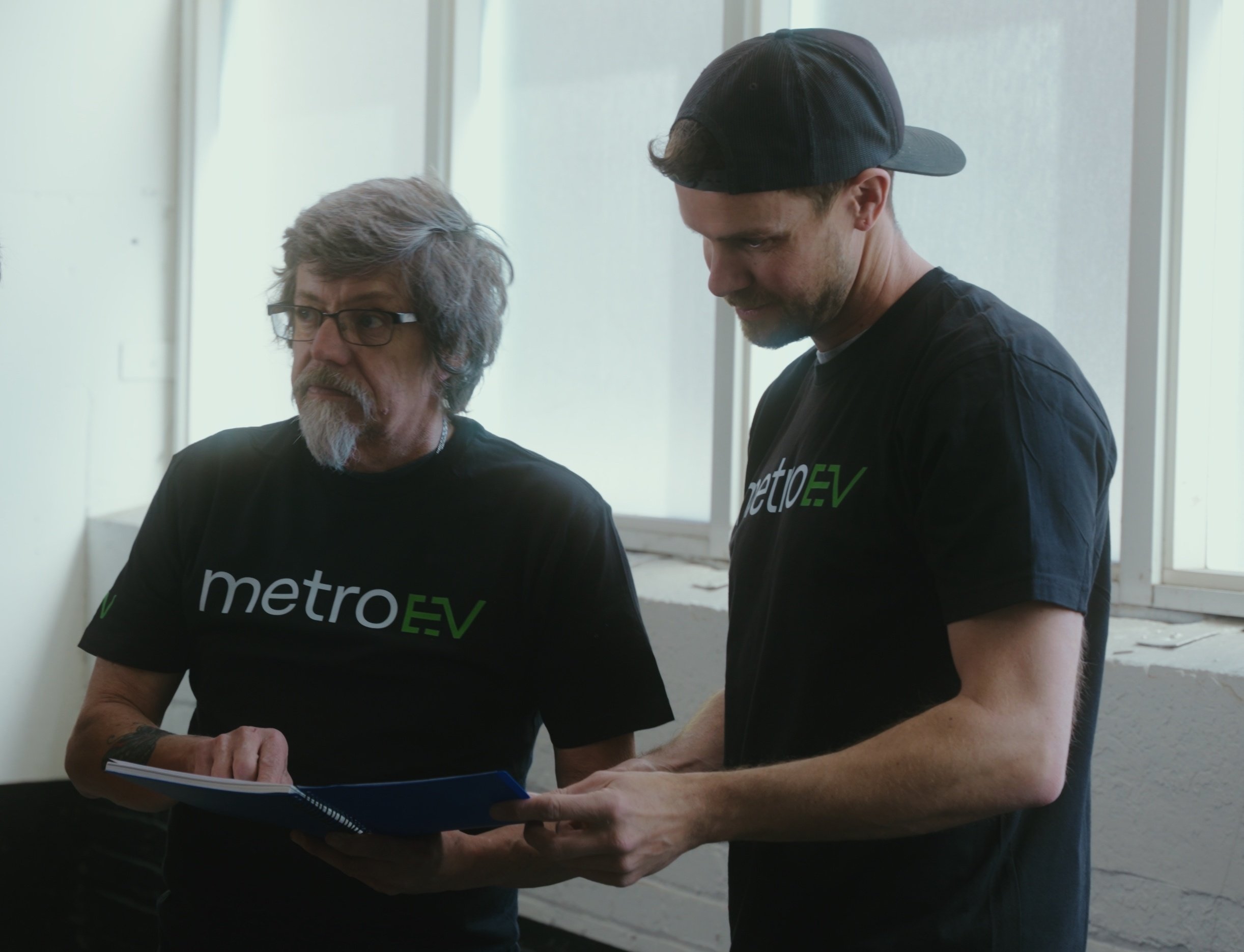Electric vehicle owners understand that access to charging stations at home, work and travel routes are critical, but many aren’t always clear on how electric car charging stations work. We often hear many of the same questions from EV owners, so we’ve put together this guide on how EV chargers work, different EV charger types, and what to expect.
What is EV Charging?
EV charging is the process of replenishing an electric vehicle battery. Fully charged batteries help vehicles get maximum range and travel longer distances before needing to be recharged. Just like you would fill up your tank with conventional gasoline to fuel your next drive, an EV charger will use electrical energy to charge your electric vehicle's battery. You might even hear EV chargers be referred to as electric vehicle supply equipment (EVSE), serving as the infrastructure necessary for charging EVs.
How Does EV Charging Work?
EV charging involves multiple components and processes that work simultaneously to transfer electrical energy from the grid to the vehicle's lithium-ion battery. When an EV is plugged into a charging station, the charger communicates with the vehicle to determine the appropriate charging based on factors such as battery capacity, state of charge, and charging speed preferences. The charging process typically follows a curve, starting with a high charging rate when the battery is low and tapering off as it approaches full capacity to prevent overheating and maximize battery lifespan.
Lithium-ion batteries (commonly used in EVs) are designed to store electrical energy efficiently and can accept varying charging rates. Signals transmitted between the charger and the vehicle enable the control and coordination of charging parameters, ensuring safe and optimal charging performance. This seamless merge of lithium-ion batteries, charging curves, and communication forms the backbone of EV charging technology, enabling the transition to cleaner and more sustainable transportation.
Difference Between KW and KWH
In the world of EV charging, think of KW (kilowatt) as speed and kWh (kilowatt-hour) as the amount of gas in your tank.
KW (kilowatt): This tells you how fast your battery is being charged at a given moment. Higher KW means faster charging. Imagine a wider hose filling a pool - more water (electricity) flows in each second.
kWh (kilowatt-hour): This represents the total amount of energy used to charge your battery. It's like how many gallons of gas it takes to fill your tank. A larger kWh battery can store more energy, giving your EV a longer range."
What To Expect With EV Chargers
Cost To Charge EVs
When it comes to the cost to charge electric vehicles, individuals will typically save money compared to traditional gasoline-powered vehicles. Public charging stations may involve varying costs, ranging from free to pay-per-use or subscription-based models, depending on the provider and location.
Time To Charge EVs
The time to charge electric vehicles will also vary depending on factors such as the vehicle's battery capacity, charging speed, and the type of charging station used. Level 2 chargers are most common and could take a few hours to charge but there are fast-charging options that can significantly reduce charging times to as little as 30 minutes for an 80% charge, making long-distance travel more convenient.
Cost To Install EV Charging Stations
The cost to install EV charging infrastructure at a multi-residential building or commercial space can vary widely depending on the type of chargers being installed, electrical system upgrades, and complexity. On average, those investing in EV chargers can expect to pay anywhere from $5,000 to $10,000.
How To Install EV Chargers
Installing EV charging involves hiring a licensed electrician to assess your electrical system's capacity and install the necessary charging equipment. Depending on your location's setup, installation may require modifications to your electrical panel and wiring, ensuring safe and efficient charging.
Best EV Charging Solution for Your Condo Building
EV Charger Types And Options
Just like most things, one size does not fit all! Everyone has their own transportation needs and the type of EV charger that someone would decide to use is based on factors such as charging speed, convenience, and intended vehicle usage. There are a few charging solutions that one can consider:
Level 1 EV Chargers
Utilizing standard household outlets, Level 1 EV chargers are considered outdated due to their slow charging speeds. Given the limited charging capability and lengthy charging times, they are generally not recommended for installation except as a temporary or backup charging solution for emergency situations or overnight charging at a single-family residence.
Level 2 EV Chargers
Level 2 EV chargers operate at higher voltages offering faster charging speeds and providing a longer range per hour of charging, depending on the vehicle and charger specifications. Widely available for residential, workplace, and public installations, Level 2 chargers are a popular choice for EV owners and business owners seeking convenient charging solutions.
Level 3 EV Chargers
Level 3 EV chargers, also known as DC Fast Chargers, offer rapid charging capabilities by supplying direct current. With faster charging speeds, Level 3 chargers can provide significant range in a short amount of time, making them essential for long-distance travel and commercial spaces where efficient charging is essential.
Get A Quote Today!
Contact MetroEV to get a quote! Take the first step towards an electrified future with our team of experts today. Whether you are considering EV charging for multi-residential living, commercial, or retail spaces, we can help. MetroEV is ready to tailor a solution that aligns with your unique EV charging goals ensuring a smooth transition.

AUTHOR
Shai Sinai
Shai is the Vice President of Sales at metroEV, specializing in electric vehicle charging station installations for multi-residential, commercial and public properties. With hands-on experience across the entire process—from site assessments and EV Ready planning to infrastructure design and installation—Shai brings deep industry knowledge and practical insight to every project.

.png)






